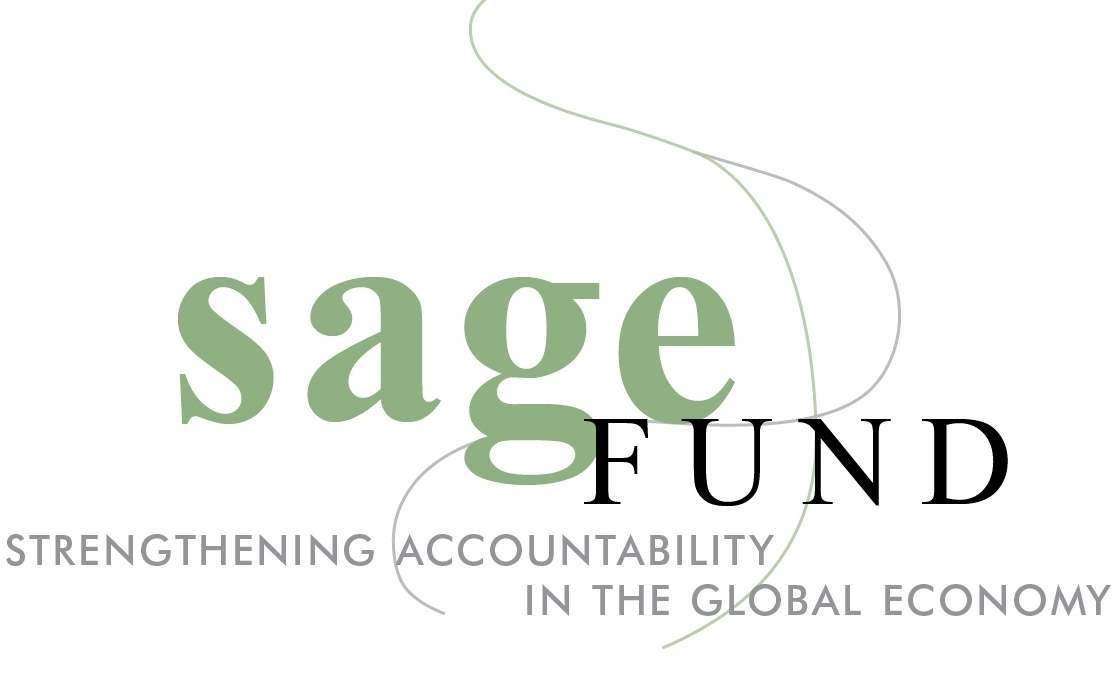grant round
Community-Driven Strategies
In 2017, the SAGE Fund supported a round of grants with a focus on seeding new strategies for strengthening community control and corporate accountability in investment. The asymmetries of power between local communities and transnational corporations in investment projects predominantly focused on natural resource extraction, create enormous challenges in holding corporations and other economic actors accountable to human rights standards. While there is widespread agreement about the need for communities to have a meaningful role in decision-making about investment and development projects that affect their health, lands, resources, and livelihoods, there are few examples that demonstrate that principle in practice. The SAGE Fund aims to address this power imbalance by supporting five projects that strengthen community control over investment decisions and their impacts. Designed and driven by affected communities with allied organizations, the projects aim to mitigate the impact of harmful projects and advance remedy for harms. They seek to create a meaningful power shift, enabling communities to move beyond consultation to exercising control and shaping outcomes.
grant round locations
Leveraging community consent over extractive development
CRIPDES together with its partners will seed regional community consultation initiatives to determine consent and control over extractive development in Central America. The project will build the capacity of a recently-formed regional alliance on mining in Central America to embed community consultations as a legally binding mechanism for approval of extractive development in El Salvador, Guatemala, Honduras and Nicaragua.
organizations
Association for the Development of El Salvador (CRIPDES),
cripdes.net, El SalvadorMadre Selva Collective, madreselva.org.gt, Guatemala
Humboldt Center, humboldt.org.ni, Nicaragua
Reflection, Investigation and Communication Team (ERIC) and Radio Progreso, radioprogresohn.net, Honduras
Institute for Policy Studies (IPS), ips-dc.org, USA
Building bargaining power of a transnational alliance of affected communities
ReAct and its partners will pilot a model of building capacity and bargaining power of a transnational alliance of local communities affected by the same corporation through a coordinated campaign. Working with local communities, ReAct and the International Alliance of Communities affected by Bollore-Socfin plantations in Cameroon, Ivory Coast, Liberia, Sierra Leone and Cambodia, will build on a commitment from Socfin to change some of its practices to enforce accountability for its human rights impacts.
ORGANIZATIONs
ReAct (Network for Transnational Collective Action),
projet-react.org, FranceOnEstEnsemble ("WeAreTogether"), asso-sherpa.org/wp-content, Cameroon
Synergie Nationale des Paysans et Riverains du Cameroun (Synaparcam), asso-sherpa.org/wp-content, Cameroon
Malen Land Owners and Users Association (MALOA),
facebook.com/MALOAPujehun, Sierra LeoneBunong Indigenous People Association (BIPA),
facebook.com/www.bunong.org, Cambodia
Holding pension funds accountable for conflicts arising from investments
GRAIN and Rede Social aim to stem the flow of investments fueling land grabs and forced displacement in Brazil by addressing the lack of detailed information tracking investment in farmlands, and building the collaboration of affected communities and investor advocacy organizations to pressure foreign investors. GRAIN and Rede Social will investigate, expose and pressure pension and endowment funds from acquiring farmland in Brazil that contributes to land conflicts, building local pressure and transnational advocacy to cancel land deals and deter foreign investment that causes harmful impacts.
organizations
GRAIN (Genetic Resources Action International), grain.org, Spain
Rede Social de Justica e Direitos Humanos, social.org.br, Brazil
Piercing impunity in emblematic corporate accountability case
COPINH will develop and coordinate work to establish the responsibilities of the economic actors behind human rights violations related to the Agua Zarca Dam in Honduras. By employing human rights strategies, the community aims to hold companies and the banks that finance them accountable for the harmful projects and violence they generate without community consent.
organizations
Civic Council of Popular and Indigenous Organizations of Honduras (COPINH), copinh.org, Honduras
Broad Movement for Dignity and Justice, Honduras
School of the Americas Watch, soaw.org/border, Latin American Representative
Reflection, Investigation and Communication Team and Radio Progreso, radioprogresohn.net, Honduras
Guatemalan Human Rights Commission, ghrc-usa.org, Guatemala
Environmental Defenders Law Center, edlc.org, USA /Brazil
Piloting handheld technology for community monitoring strategies
SDI and SESDev will advance community-driven strategies to hold palm oil companies accountable to human rights standards in Liberia, through a new channel for connecting information about impacts on the ground to national and international-level policy advocacy. The project will expand a pilot program equipping community monitors in Liberia with a handheld digital tool for documenting, monitoring and reporting on violations caused by palm oil plantations, providing “real time evidence” to support demands for greater respect for community rights to land, natural resources and livelihoods.
organizations
Sustainable Development Institute (SDI), sdiliberia.org, Liberia
Social Entrepreneurs for Sustainable Development (SESDev),
sesdev.org, LiberiaTIMBY (This Is My Backyard), timby.org, Kenya
Forest Peoples Programme, forestpeoples.org, UK






